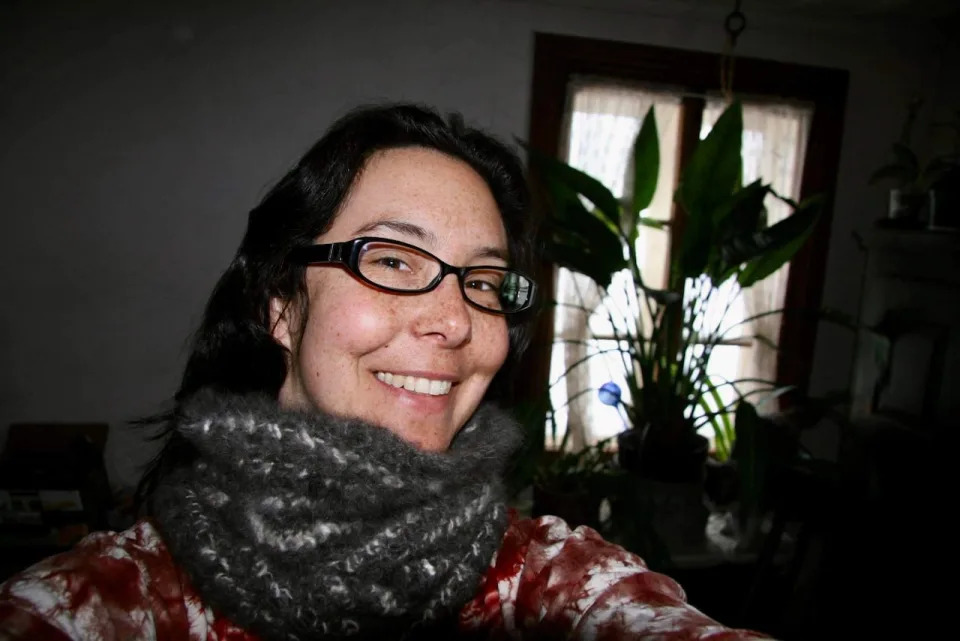CBC
Fri, September 1, 2023

Marie-Hélène Henry was known for her love for animals. She died on Aug. 12, and her death has renewed calls for the city to improve the ways it handles workplace harassment. (Submitted by Marie-Hélène Henry's family - image credit)
Marie-Hélène Henry loved animals and was always in their company.
She was a city of Montreal employee, working at the Botanical Garden. She was also on the autism spectrum and that's why she was regularly bullied at work, according to her best friend.
"We were consoling her almost daily because she found it so hard to go to work," said Marie-Claude Piguet.
Henry took her own life on Aug. 12. She was 47.
Her death comes just a few months after the blue-collar workers' union filed a complaint with the city over the alleged abuse she was suffering at work.
Jean-Pierre Lauzon, president of the Syndicat des cols bleus regroupés de Montréal (SCFP 301), said in a statement that the union is devastated by the turn of events.
"We supported her," said Lauzon, citing the union's effort to file psychological harassment complaints with the city's Division du respect de la personne respect — a department that handles such complaints.
"The procedures are always very long in the city of Montreal."
Lauzon said the union will conduct a thorough investigation to prevent such a situation from happening again and will co-operate with Quebec's workplace safety board (CNESST) as it launches its own investigation.
7 pages of complaints
Henry's father died of cancer last October. And Piguet said the bullying had become worse in recent months.
"There's about seven pages worth of complaints that she gave to her union representative in order to get help. But help did not come," she said.
On Friday, the Center for Research-Action on Race Relations (CRARR) hosted a news conference about the ongoing harassment issues among city workers.
"We have a lot of Black and Arab blue-collar workers complaining about being harassed. Not only are they being harassed, but some are exposed to physical violence and intimidation," said executive director Fo Niemi.

Center for Research-Action on Race Relations (CRARR) executive director Fo Niemi said Black and Arabic blue collar workers with Montreal are often victims of harassment.
Center for Research-Action on Race Relations (CRARR) executive director Fo Niemi said Black and Arabic blue-collar workers with Montreal are often victims of harassment. (Rowan Kennedy/CBC)
When these victims file complaints with their immediate supervisors, there is usually no response, he said. Then when they go through human resources, still nothing happens, he said.
In this case, Henry was not a person of colour, but somebody with a disability, he explained.
Also at the news conference were blue-collar workers who have made their own allegations against the city over harassment. Among them was Maxime Charles, who offered his sympathies to Henry's family.
"This really touches us," he said. "This is happening in every borough."
Charles said he has taken leave from work because of the harassment, and he understands how such treatment can affect a person's mind.
"We are fed up. We are tired. We are scared," said Charles, calling for immediate action.
Complaints of harassment spur vow to change
Harassment among city employees is not a new allegation in Montreal.
A report, commissioned by the city's comptroller general and published in April 2021, described a long-running climate of tension among blue-collar workers.
Workers "almost unanimously report inequitable or discriminatory treatment," read the report authored by Tania Sabia, an industrial relations expert with the Université de Montréal.
A second report that year, produced by an expert hired by the union, documented the same problems as the first. Written by Université du Québec à Montréal professor Angelo Soares, the report concluded the workers' allegations of discrimination were "founded" and urged the city of Montreal, the Montréal-Nord borough and the union to take "urgent" action to correct them.

Marie-Hélène Henry worked for Montreal at the Botanical Garden. She was 47 when she died.
Marie-Hélène Henry worked for Montreal at the Botanical Garden. She was 47 when she died. (Submitted by Marie-Hélène Henry's family)
In June, after months of hearings and public meetings, Montreal introduced a new process for reporting discrimination and harassment while revising its human resources policy.
But Gino Clyford Lubérisse, a Montreal blue-collar union delegate, said it's still not enough and the disciplinary process takes too long.
"We're asking how much longer we will have to wait," he said. "Who will be held accountable for this?"
Mayor says investigation is 'right thing'
Montreal's Official Opposition said in a statement that what Henry went through is unacceptable. Along with the CNESST investigation, the coroner's office is also looking into the circumstances surrounding the woman's death.
Surviving members of Henry's family did not want to appear on camera but told CBC News that her work environment was toxic and a contributing factor in her death.
They are calling on the city to give managers more tools and training to deal with harassment.
In a statement, city spokesperson Hugo Bourgoin said Montreal will respect confidentiality and not comment on the specific case.
However, the city is committed to providing all of its employees with a healthy and respectful work environment and is making every effort to achieve this, he said.
The human resources department is also continuing its efforts to educate and equip stakeholders, as well as all managers, so zero tolerance is truly embodied when it comes to racism, discrimination and harassment, he said.
Employees who are going through difficult times have resources, such as an employee assistance program, available to them, Bourgoin added.
"There is an investigation and I think it's the right thing to be done, we will participate in that," said Montreal Mayor Valérie Plante when asked about Henry's death during a news conference Friday.
"And whatever comes out of it, we will take it and act on it."
No comments:
Post a Comment